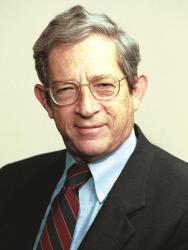On the eve of President George W. Bush’s visit to India and Pakistan, both sides are racing to complete the nuclear agreement announced in the July, 18, 2005 communiqué between Bush and Indian Prime Minister Manmohan Singh the time he reaches New Delhi on March 1, and there is a good chance that, as Stephen Hadley, Bush’s National Security Advisor noted in a press briefing, negotiations will continue. Informed observers on both sides claim that agreement can be reached before the end of 2006, and implemented over the next few years.
The history and fate of this agreement will preoccupy journalists and scholars for months, if not years, to come. This note examines three of its aspects:
- How did the two countries reach this point, and what are the politics of “the deal” in both countries?
- What consequences might flow from its consummation or collapse?
- Finally, “how much is enough?” Even though this is purportedly an agreement to allow India to acquire civilian nuclear technology, most attention has been focused upon its military and strategic implications.
Read Full Paper (PDF—76kb)
The Brookings Institution is committed to quality, independence, and impact.
We are supported by a diverse array of funders. In line with our values and policies, each Brookings publication represents the sole views of its author(s).



